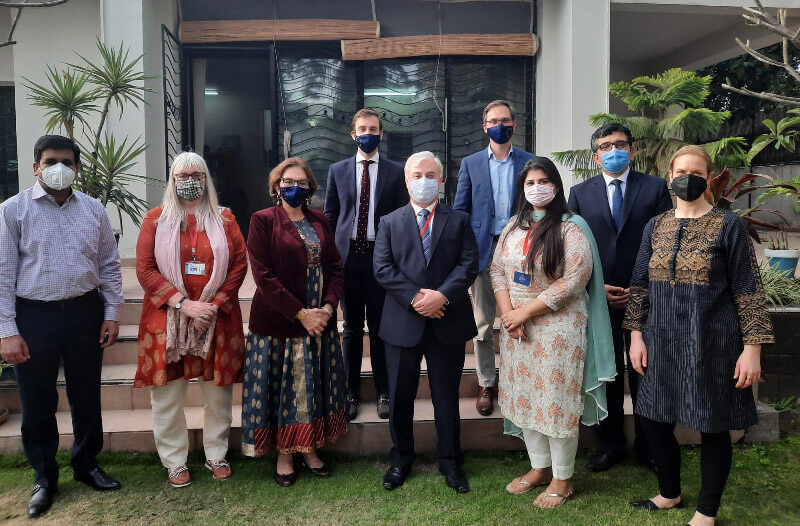After much debate, the European Union’s medicines regulator has concluded that the Oxford-AstraZeneca COVID-19 vaccine is safe to use after several EU countries suspended their rollouts following reports that it could be linked to blood clots, CNN reports.
The European Medicines Agency (EMA)’s executive director Emer Cooke announced that the agency had “come to a clear scientific conclusion: this is a safe and effective vaccine.”
Cooke went on to explain that the group did not find that the vaccine causes clotting, adding that it could not rule out definitively a link to a rare blood clotting disorder, of which seven cases have been reported out of 20 million doses given in the UK. But she said the benefits of using the vaccine outweighed the risk.
The agency’s approval of the vaccine comes after more than a dozen European countries halted their use of the vaccine, citing reports of a handful of patients across Europe who developed clotting after being inoculated.
Most of the countries agreed to wait for the EMA’s green light before resuming rollouts, but concerns remain about the impact of the suspensions on vaccine hesitancy across the continent.
“I want to reiterate that our scientific position is this: this vaccine is a safe and effective option to protect citizens against COVID-19,” Cooke said at a press conference Thursday.
“It demonstrated that at least 60% efficacy in clinical trials and preventing coronavirus disease, and in fact the real world evidence suggests that the effectiveness could be even higher than that.”
The group said it recommended raising awareness of blood clot reports so these cases could be analyzed further. But they added that such reports were rare, and that more than 7 million people have received the vaccine in the EU.
“The committee also concluded that the vaccine is not associated with an increase in the overall risk of thromboembolic events, or blood clots,” Cooke said.
Nearly all of western Europe had temporarily stopped using the shot in recent days, even amid a third wave of coronavirus infections across the region, after a small number of reports of clots emerged.
The deaths of three individuals, a person in Austria, a woman in Denmark, and a third patient in Norway, led to the suspensions. But the decisions were criticized by many in the medical community, and other countries continued to back the use of the vaccine — including the UK, which has given out more than 11 million AstraZeneca doses so far.
In the EU, leaders now face the question of how to rebuild any trust in the AstraZeneca vaccine that has been lost over the past week. The bloc’s rollout of the jab has stumbled from one obstacle to another since it was approved for use in January, with governments scrambling to secure limited supplies of the jab while simultaneously casting doubts over its efficacy and safety.
Milan’s largest vaccine center told CNN it would resume AstraZeneca vaccinations Friday if given the green light from the EMA. It would also overbook appointments so as to make up for the shortfalls of the past few days. Ireland’s Prime Minister had earlier told CNN he hoped his country could “catch up fairly quickly” once the vaccination program resumed.
But experts say some damage has already been done when it comes to public perception of a potentially life-saving vaccine.
For example, in France, an Elabe poll showed this week that only 22% of the population now trusts the AstraZeneca vaccine. Remi Salomon, a senior French hospitals official, told BFM TV on Thursday that “people are being overly cautious” in the country and that he feared “people will not interpret” the suspensions in “the right way.”
“A scare like this has the potential to increase vaccine hesitancy,” Michael Head, senior research fellow in Global Health at the University of Southampton in Britain, told CNN earlier in the week. “These vaccines are to protect against a pandemic virus. There is an urgency to the rollout.”














